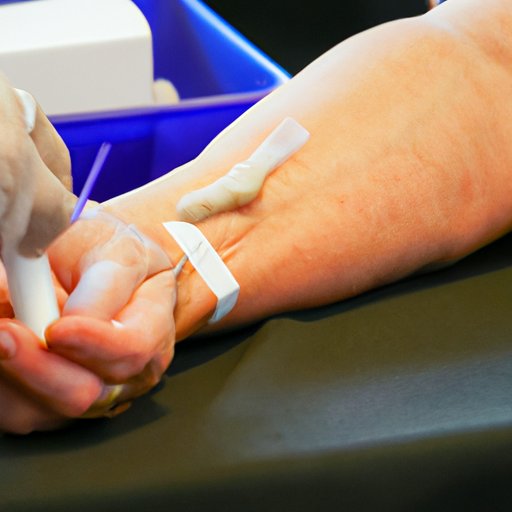
The Ultimate Guide to Getting Free or Low-Cost Blood Work Done
Getting regular blood work done is essential for anyone who wants to maintain their health and stay on top of any potential medical issues that may arise. Unfortunately, for many of us, the cost of blood work can be a major barrier to accessing this vital healthcare service. But don’t let financial constraints stop you from taking care of yourself. In this article, we’ll explore some of the many options available for getting blood work done for free or low-cost.
Community Events and Health Fairs
Many communities host health fairs and other events where free blood tests are offered. These can be a great way to get blood work done for no cost, especially if you’re uninsured or don’t have the financial means to cover the cost of tests. To find out when these events are happening in your area, check with your local health department or community center.
Low-Cost Options for Blood Work
If you’re not able to find free testing options in your area, there are still many low-cost options available to you. One option is to look for clinics or centers that offer sliding scale fees, which means that the cost of tests will be based on your income. Another option is to use national directory services, such as the National Association of Free and Charitable Clinics, which can help you find low-cost clinics and centers in your area.
Resources for People without Insurance
If you don’t have insurance, there are still many resources available for getting free or low-cost blood work done. Government organizations, such as the Department of Health and Human Services, offer a variety of programs that provide free or low-cost tests to individuals and families in need. Non-profit organizations, such as the National Foundation for Infectious Diseases, also offer free testing for certain diseases.
To apply for these services, you’ll typically need to provide some basic information about your income and medical history. You may also be asked to provide documentation, such as proof of income or residency. To find out more about these programs and how to apply, visit the websites of the organizations that offer them.
Tips for Negotiating with Healthcare Providers
If you’re not able to find free or low-cost testing options in your area, you may be able to negotiate with your healthcare provider to see if they can waive or reduce any fees associated with blood work. To do this, it’s important to be prepared and have a plan. Start by doing some research to find out what the average cost of blood work is in your area, and then come up with a realistic budget that you can afford.
When you’re ready to negotiate with your healthcare provider, be clear and straightforward about your financial situation. Explain that you’re unable to afford the full cost of tests and ask if they can provide any kind of assistance. It can also be helpful to offer to pay what you can afford upfront or to set up a payment plan.
Free Home Testing Kits
Finally, some organizations offer free home testing kits for certain medical conditions, such as high blood pressure or diabetes. These kits can be a great option if you’re looking for a convenient way to monitor your health from home, without having to visit a clinic or medical center.
If you’re interested in using a free home testing kit, it’s important to read and follow the instructions carefully. You’ll also want to make sure that the kit is reliable and accurate, and that it’s been approved by the Food and Drug Administration (FDA).
Conclusion
When it comes to getting blood work done, there are many free and low-cost options available to you. From community events and health fairs to low-cost clinics and government programs, there are many ways to access the healthcare services you need, even if you don’t have insurance or can’t afford to pay full price.





